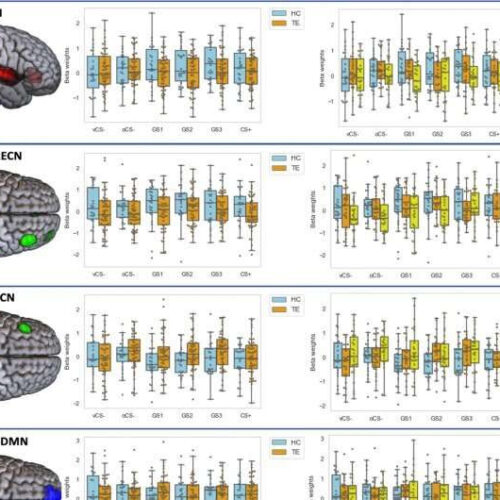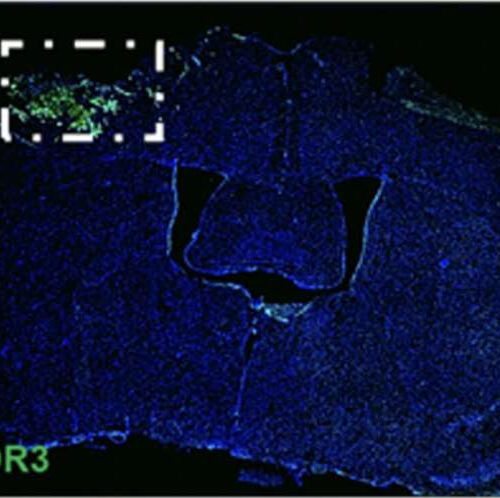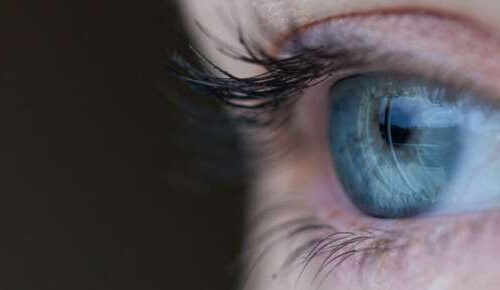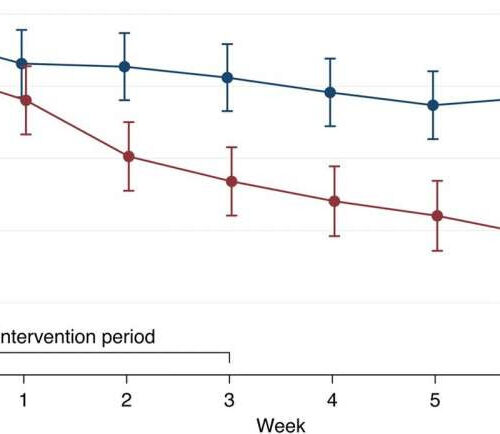September 10, 2024 by The North American Menopause Society Credit: Human Brain ProjectAs the median age of our population rises, so does the number of people diagnosed with Alzheimer’s disease. With advances in technology, it’s easier to determine brain age and identify blood-based Alzheimer’s disease biomarkers. A new study links trauma exposure with brain age...
Tag: <span>Trauma</span>
Researchers reveal how trauma changes the brain
by University of Rochester Medical Center Neural activity changes (delta: EG-LG) over the two generalization phases to conditioned and generalization stimuli (vCS-, oCS-, GS1, GS2, GS3, CS+) for (a) salience network (SN); (b) right executive control network (RECN); (c) left executive control network (LECN); (d) anterior default mode network (a-DMN); and e) posterior default mode...
Meditation holds the potential to help treat children suffering from traumas, difficult diagnoses or other stressors
by Hilary A. Marusak, The Conversation Credit: CC0 Public Domain Children actively meditating experience lower activity in parts of the brain involved in rumination, mind-wandering and depression, our team found in the first brain-imaging study of young people under 18 years old. Over-activity in this collection of brain regions, known as the default mode network, is thought to...
Pushing ‘closure’ after trauma can be harmful to people grieving. What you can do instead
by Nancy Berns, The Conversation Credit: Pixabay/CC0 Public Domain From the breakup of a relationship to losing a loved one, people are often told to find “closure” after traumatic things happen. But what is closure? And should it really be the goal for individuals seeking relief or healing, even in these traumatic times of global pandemic,...
Scientists find molecular clues behind acute and chronic phases of traumatic brain injury
by Arizona State University Qualitative representation of A2 acute injury–specific TBI biomarker HCDR3 (green) and cell nuclei (blue) in 1-dpi tissue. Region of interest (ROI) represented in white box. Scale bars, 200 μm. Credit: Sarah Stabenfeldt, Arizona State University New research led by scientists at Arizona State University has revealed some of the first detailed molecular...
Trauma of diagnosis stays with eye disease patients
by Anglia Ruskin University Credit: Pixabay/CC0 Public Domain The way in which a patient is told they have serious eye disease can impact their psychological health and ability to cope with their condition in the long-term, according to new research published in the open-access journal BMJ Open. A research team led by Dr. Jasleen Jolly, of...
Feelings of detachment predict worse mental health outcomes after trauma
by McLean Hospital Following trauma, feeling detached from one’s surroundings may suggest a higher risk of later developing serious mental health conditions. Credit: McLean Hospital Results from the largest prospective study of its kind indicate that for individuals who experience trauma, the presence of dissociation—a profound feeling of detachment from one’s sense of self or...
Digital CBT effective for severe trauma
by Karolinska Institutet Change in symptoms of post-traumatic stress during the controlled study period. Credit: DOI: 10.1017/S0033291721003706 Traumatic experiences such as assault or a road accident can give rise to nightmares, flashbacks and other mental reactions, and accessible therapy is needed to prevent exacerbation of the problems. Researchers at Karolinska Institutet have now completed what could...
One psychedelic experience may lessen trauma of racial injustice – neuroscience
Lower stress, depression recalled after using drug, study finds OHIO STATE UNIVERSITY COLUMBUS, Ohio – A single positive experience on a psychedelic drug may help reduce stress, depression and anxiety symptoms in Black, Indigenous and people of color whose encounters with racism have had lasting harm, a new study suggests. The participants in the retrospective...
Researchers discover protective factor against psychological trauma
by University of Basel The endogenous regulation of a specific gene is associated with a reduced risk of developing post-traumatic stress disorder following a terrifying experience. In particular, traumatic memories of the experience are less severe. Researchers from the University of Basel have reported these findings in the scientific journal PNAS. Traumatic experiences, such as...
- 1
- 2









